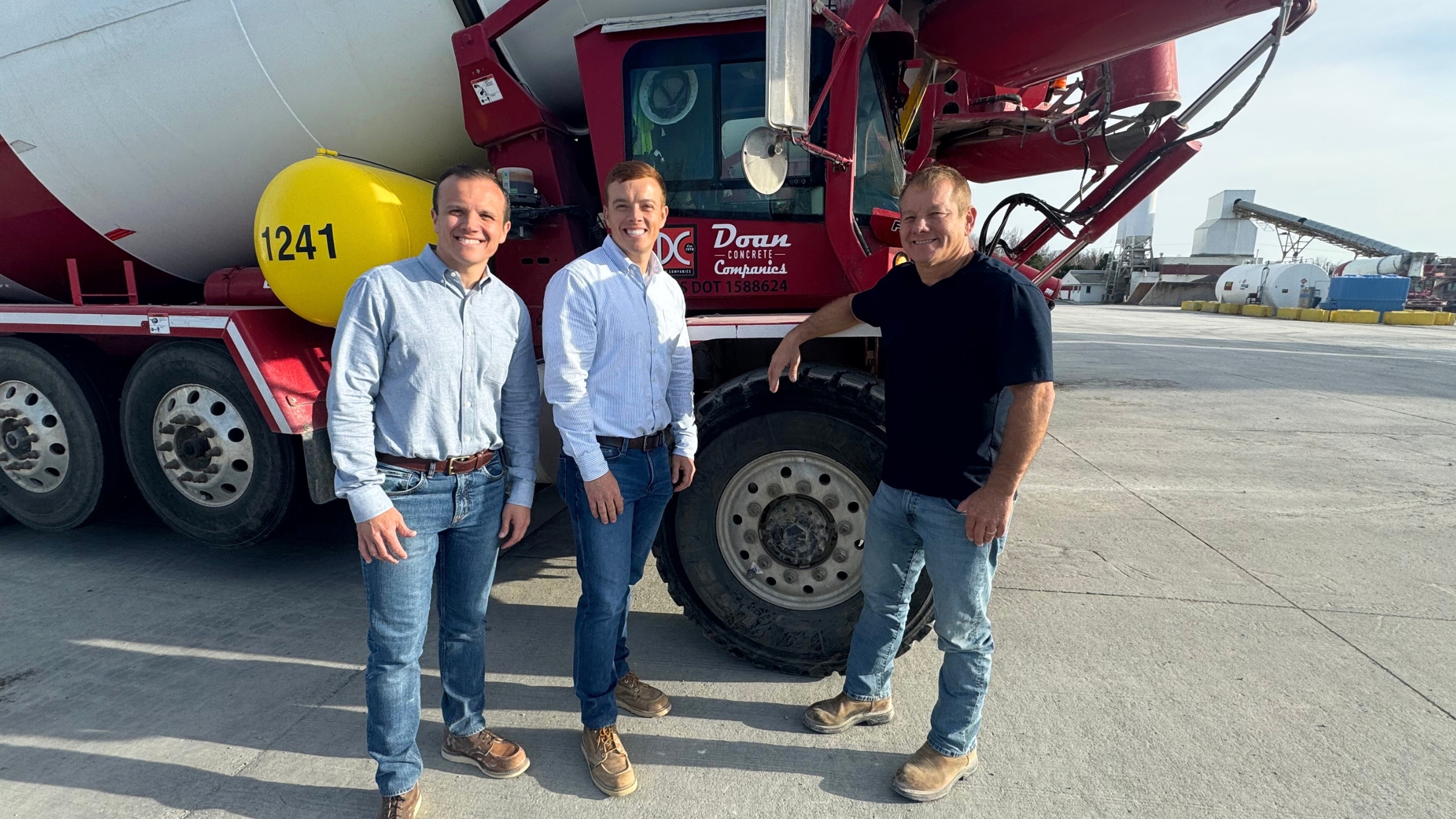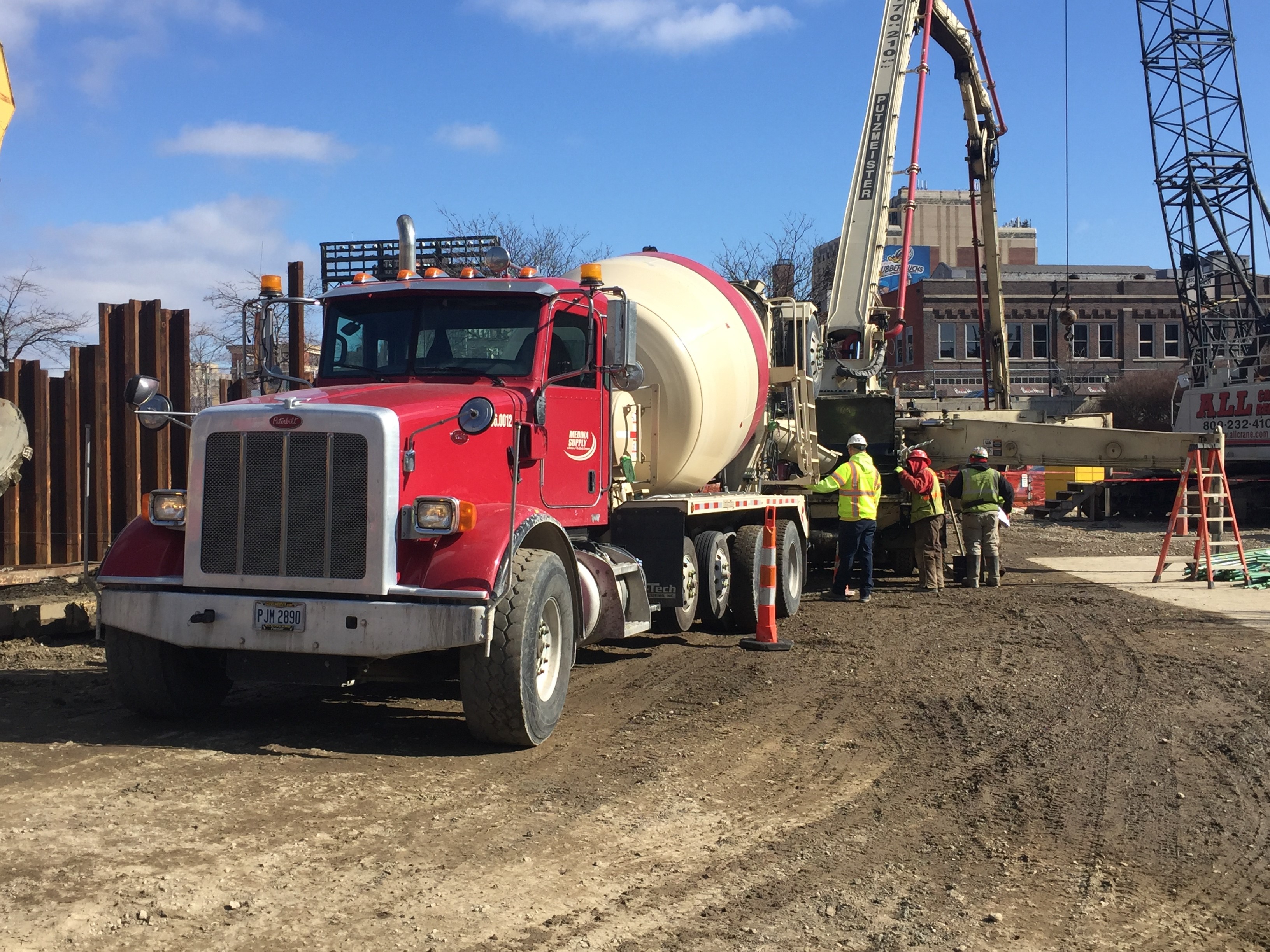Enhance Curb Appeal with Decorative Concrete Pasadena TX Solutions
The Advantages of Making Use Of Concrete Providers for Sturdy Frameworks
Concrete services use an array of advantages for creating long lasting structures. This material is renowned for its phenomenal stamina and long life. Its resistance to environmental aspects makes it a useful choice for numerous environments. Furthermore, concrete is frequently much more economical in the future. As contractors and engineers increasingly discover ingenious applications, the possibility of concrete in layout becomes even a lot more intriguing. The conversation of these benefits reveals compelling insights into contemporary building practices.
Exceptional Toughness and Durability
Concrete is renowned for its phenomenal strength and toughness, making it a recommended material in construction. Concrete Contractors Near Me. Its capability to resist and withstand heavy tons contortion under stress is unequaled, which is why it is usually utilized for foundational aspects, supporting structures, and skyscrapers. The structure of concrete, which consists of cement, water, and aggregates, permits it to achieve high compressive toughness, commonly surpassing that of conventional structure materials like wood or steel. This strength assures architectural honesty and long life, consequently decreasing maintenance expenses over time. Additionally, concrete's resilience is noticeable in its ability to endure various stress and anxieties without catching tear and wear, making it suitable for diverse applications, from bridges to household homes. Generally, the robust attributes of concrete add to its credibility as a trusted choice for constructing long-lasting frameworks that stand the test of time
Resistance to Environmental Elements
Lots of construction materials are at risk to ecological degeneration, concrete displays remarkable resistance to different aspects such as moisture, temperature level changes, and chemical direct exposure. Its intrinsic buildings make it specifically suitable for diverse applications, from household buildings to huge framework projects. Concrete's reduced permeability limitations water absorption, lowering the threat of damage from freeze-thaw cycles and stopping mold and mildew development. Furthermore, it preserves architectural integrity when subjected to severe temperatures, making it ideal for regions with extreme environments. Concrete also stands resilient versus chemical strikes, consisting of sulfates and acids, which can degrade other products. This resistance is even more improved by the use specialized ingredients and therapies throughout the blending procedure. In general, concrete's toughness when faced with ecological difficulties assurances durability and integrity, making it a recommended option for architects and contractors intending to create withstanding frameworks.
Cost-Effectiveness Over Time
Cost-effectiveness in concrete services manifests as a lasting financial investment that noticeably benefits frameworks. This strategy not just minimizes maintenance expenses but additionally improves power effectiveness, resulting in substantial cost savings in time. Understanding these elements is necessary for assessing the general value of durable concrete constructions.
Long-Term Investment Advantages
Buying long lasting frameworks returns considerable lasting benefits that prolong beyond initial expenses. Concrete services, recognized for their robustness, add to a framework's longevity, inevitably lowering the total expense of possession. By making use of high-grade products and skilled craftsmanship, proprietors can expect fewer repairs and substitutes over time. This integrity translates right into a stable possession value, making concrete buildings a wise financial option in the realty market. Additionally, frameworks developed with concrete are often much more energy-efficient, more enhancing their cost-effectiveness. As a result, the initial financial investment in concrete solutions can result in substantial cost savings and better returns throughout the years, verifying the worth of choosing long lasting choices for lasting construction tasks.
Reduced Maintenance Costs
The durability of concrete frameworks not only boosts asset worth but likewise substantially lowers maintenance expenditures over time. Unlike materials that deteriorate rapidly, concrete shows exceptional durability versus various ecological factors, such as moisture, temperature fluctuations, and bugs. This inherent sturdiness converts to less substitutes and repairs, thereby minimizing long-lasting expenses. Furthermore, the low absorption price of concrete limits concerns associated to mold and mildew and mold, which can necessitate expensive remediation initiatives. Regular maintenance is frequently minimized to straightforward cleaning as opposed to extensive repair work, better adding to cost-effectiveness. Because of this, homeowner purchasing concrete services can expect a considerable reduction in maintenance spending plans, making concrete a financially audio option for long lasting structures.
Power Performance Financial Savings
As power effectiveness becomes significantly necessary in building and construction, concrete structures stand out for their capacity to enhance long-term cost savings on utility costs. The thermal mass of concrete enables buildings to maintain secure indoor temperatures, decreasing the requirement for heating and cooling down systems. This residential property lowers power intake and converts to reduce energy costs over time. In addition, concrete's sturdiness adds to less replacements and fixings, likewise improving cost-effectiveness. Contemporary concrete technologies, such as shielded concrete forms and energy-efficient mixes, enhance insulation and power performance, leading to significant cost savings. Consequently, buying concrete solutions not only benefits the environment via reduced power use yet likewise offers considerable financial advantages for residential or commercial property owners in the future.
Flexibility in Style and Application
Concrete's flexibility in design and application permits a wide variety of adjustable aesthetic options, making it suitable for different architectural designs (Concrete Companies Near Me). Its ability to adjust to diverse structural applications boosts its performance in both residential and industrial jobs. This flexibility positions concrete as a preferred material in modern construction
Personalized Aesthetic Alternatives

Diverse Architectural Applications
Checking out the varied structural applications of concrete exposes its exceptional flexibility in style and performance. Concrete is used in various kinds, including foundations, wall surfaces, pavements, and decorative aspects, enabling it to adjust to various building designs. Its integral strength and sturdiness make it appropriate for skyscrapers, bridges, and framework jobs. Moreover, concrete can be formed into elaborate shapes, suiting cutting-edge designs while keeping architectural integrity. This flexibility also extends to property applications, such as outdoor patios, driveways, and retaining wall surfaces. In addition, advancements in innovation have actually caused the development of specialized concrete combinations, improving performance in specific environments. This comprehensive applicability underscores concrete's necessary duty in modern building and construction, satisfying both practical and visual needs effectively.
Low Upkeep Requirements
Numerous residential or commercial property owners appreciate the reduced maintenance demands connected with concrete structures. Unlike products such as wood or steel, concrete is normally immune to parasites, rot, and rust. This resilience significantly lowers the regularity and cost of repair work gradually. Fractures and surface wear can be easily resolved with minimal initiative, commonly needing only regular sealing or resurfacing.Additionally, concrete structures do not need routine paint or staining, more contributing to their reduced upkeep. This particular is particularly valuable for business residential properties, where maintenance prices can check my site rapidly accumulate.Furthermore, concrete is much less vulnerable to weather-related damages, ensuring that structures continue to be undamaged no matter ecological conditions. Consequently, residential or commercial property owners can delight in the lasting benefits of concrete, including decreased labor and upkeep expenses, enabling them to allocate resources to other important locations of their residential properties. Eventually, the reduced maintenance demands of concrete make it an appealing option for developing resilient structures.
Eco-Friendly Structure Product
As the demand for sustainable building and construction practices expands, concrete emerges as an eco-friendly building material that provides many environmental benefits. Its production can integrate recycled materials, such as commercial byproducts and waste accumulations, which read this post here lowers the need for virgin sources and reduces land fill waste. In addition, concrete has the capability to manage temperature, therefore boosting energy efficiency in buildings. This thermal mass result can cause reduced power usage for cooling and heating, additional minimizing a structure's carbon footprint.Moreover, concrete is resilient and resilient, which means frameworks require fewer repair services and remodellings with time, bring about much less resource use in general. Developments in innovation have actually additionally resulted in the development of environmentally friendly and low-carbon concrete solutions that reduce greenhouse gas emissions during production. By prioritizing concrete in construction tasks, building contractors can add to an extra lasting future while guaranteeing the longevity and durability of frameworks.
Boosted Residential Or Commercial Property Worth and Allure
A sound concrete framework notably boosts property value and appeal, frequently making it extra appealing to potential purchasers or renters. Concrete's toughness and reduced maintenance demands contribute substantially to long-term financial investment returns. Residences including premium concrete constructions have a tendency to bring in greater offers as a result of their perceived security and long life. On top of that, aesthetically pleasing concrete styles, such as stamped or tinted finishes, can raise curb allure, developing a favorable initial impression.Moreover, concrete structures frequently fulfill modern-day building requirements, which can be a marketing factor for environmentally aware consumers. The power performance connected with well-insulated concrete likewise allures to customers looking to lower energy prices. In general, buying concrete services not just bolsters the architectural integrity of a residential or commercial property but also enhances its bankability, resulting in boosted residential property worth and an affordable side in the real estate market.
Often Asked Questions
The length of time Does It Take to Treat Concrete Effectively?
The curing procedure of concrete commonly takes about 28 days to accomplish suitable toughness, although first setting happens within hours. Aspects like temperature level and moisture can affect the treating duration and effectiveness significantly.
What Kinds of Concrete Provider Are Available?
Various sorts of concrete services exist, consisting of pouring, creating, ending up, resurfacing, and ornamental concrete. Concrete Companies Near Me. Business may likewise offer fixing, repair, and installation of concrete structures, satisfying both property and commercial requirements
Can Concrete Be Recycled After Its Usage?
Concrete can undoubtedly be recycled after its use. When refined, it can be repurposed for brand-new construction tasks, minimizing waste and advertising sustainability within the building market while preserving architectural honesty in new applications.
What Are the Finest Practices for Pouring Concrete?
When pouring concrete, finest practices include appropriate site preparation, making certain optimal temperature level conditions, utilizing appropriate mixing ratios, keeping constant pouring methods, and permitting adequate treating time to boost strength and toughness of the finished structure.
Exist Any Alternatives to Conventional Concrete?
